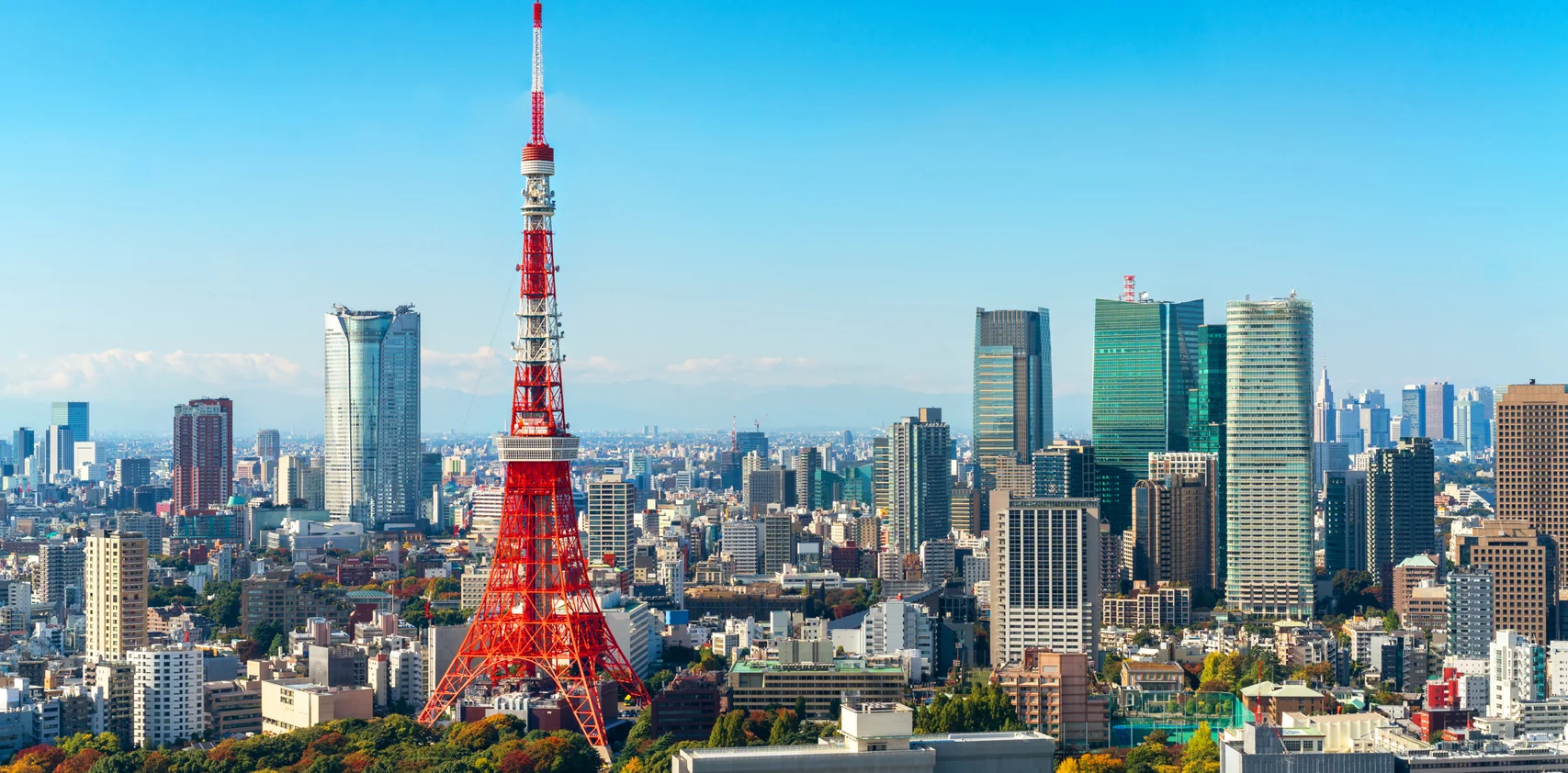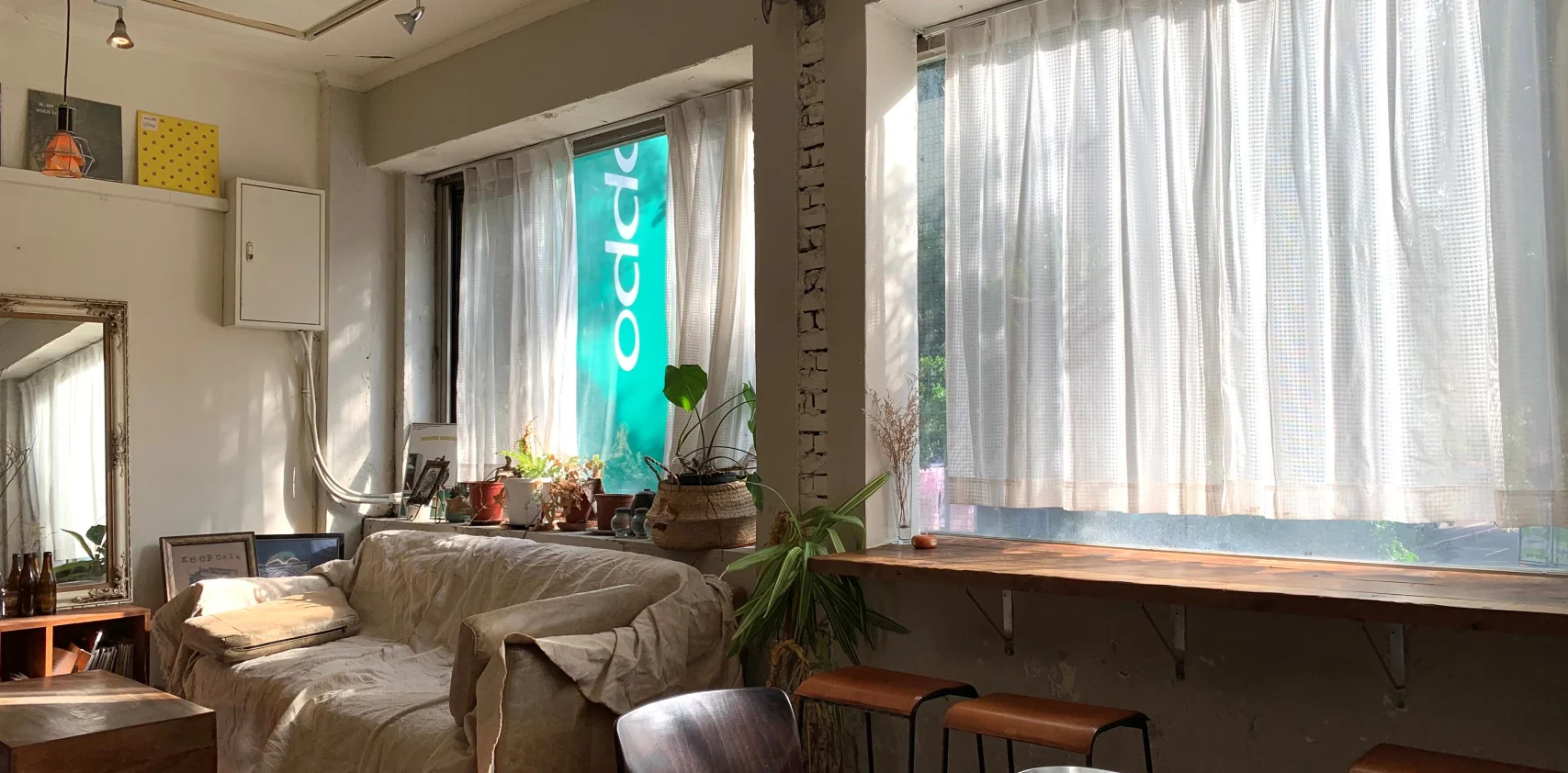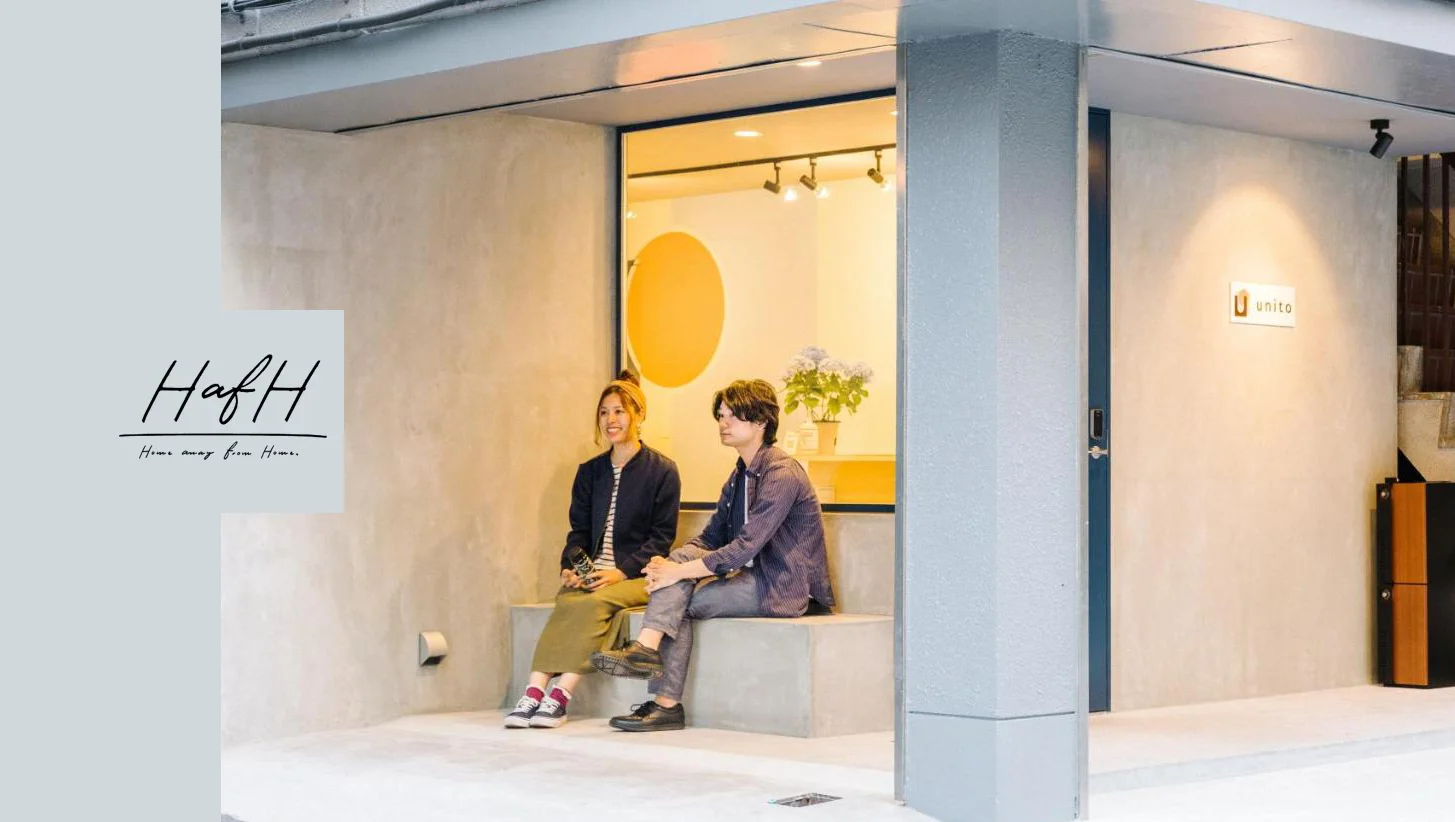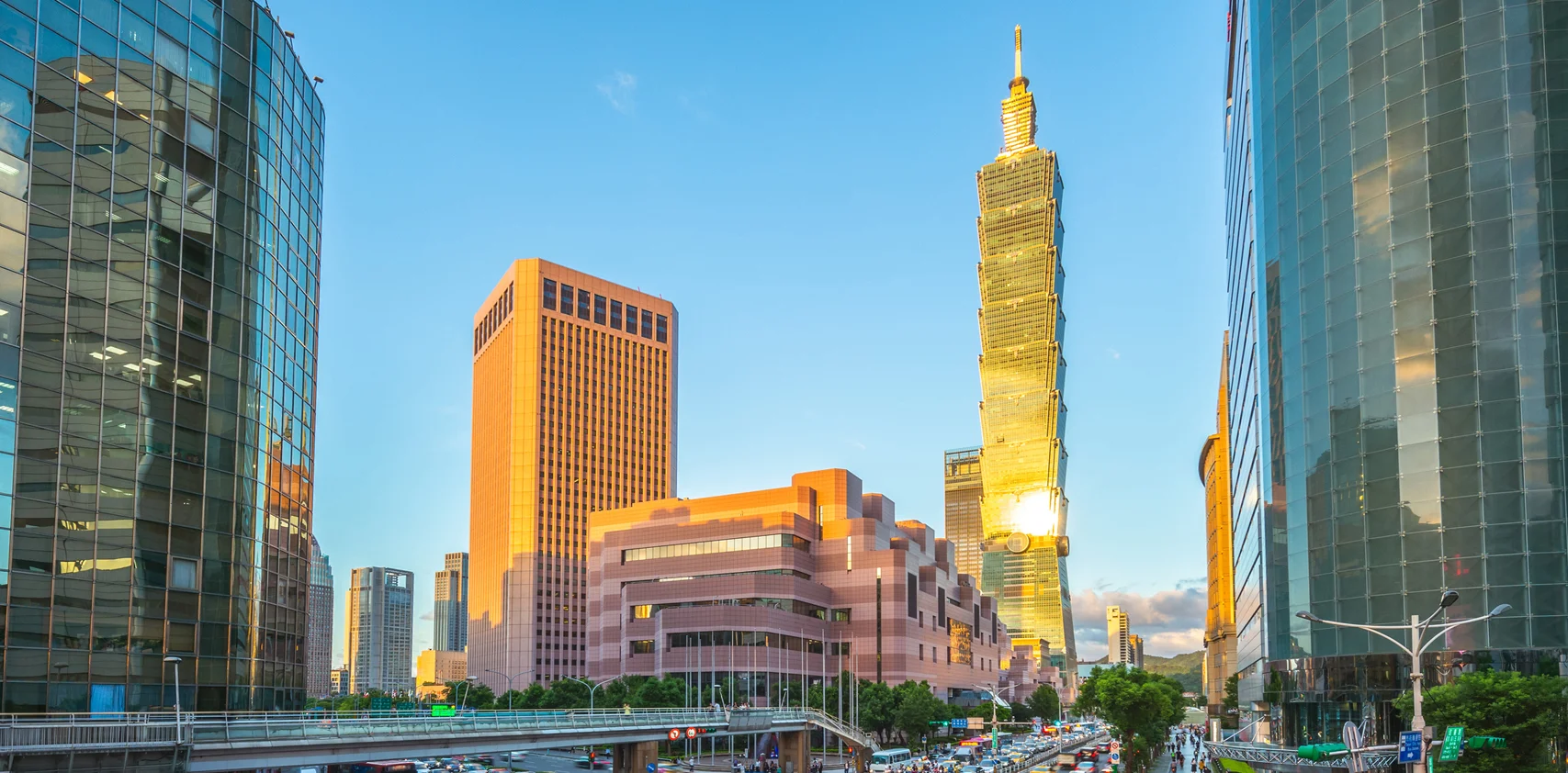All Posts
40 posts
Sort by Most Viewed

Remote Work in Japan! Japan Plans to Launch the "Digital Nomad Visa'" in March 2024
With the easing of the pandemic and the depreciation of the yen, many tourists are drawn to Japan for sightseeing, including many digital nomads who work while traveling. In response to the growing trend of digital nomads, the government of Japan is considering the introduction of a Digital Nomad Visa, which is expected to be implemented as early as the end of March 2024. The aim is to address visa issues for digital nomads and attract more talent to Japan. According to statistics from the Japan National Tourism Organization, in October of this year, the number of foreign tourists visiting Japan exceeded 2.5 million, more than double the pre-pandemic levels in 2019, indicating a gradual return of foreign tourists to Japan's pre-pandemic levels. Among these visitors, not only are there tourists for leisure purposes, but also many digital nomads making a pilgrimage to Japan. Unlike typical tourists, digital nomads only need a laptop and a stable internet connection to work remotely while traveling. This group includes individuals with high skills and incomes. Japan's widespread internet access and low crime rates make it an attractive destination for them. Coupled with the continuous depreciation of the yen, making the cost of living in Japan softer compared to other countries, this has become an essential factor attracting them. However, Japan has not specifically introduced visas for digital nomads. If digital nomads use a regular tourist visa, the stay is only up to 90 days. Those who wish to reside in Japan for an extended period may need to apply for student or work visas. However, the eligibility criteria for these visas may not necessarily align with the situations of digital nomads. In response, the government of Japan has announced that, targeting these groups, it will introduce a special visa allowing a maximum stay of up to six months, aiming to attract highly skilled individuals to reside in Japan and stimulate consumption and tourism. Applicants for the new visa must have an annual income of at least 10 million Japanese yen (approximately 2.13 million NTD), be citizens of one of the 50 countries with visa exemption agreements with Japan, and must also have private health insurance coverage. Spouses and children are also eligible to apply together. Introducing the Digital Nomad Visa could significantly attract digital nomads to Japan. -- Responsible Editor/Jeremy Lee
December 25, 2023

Reservation Available! No Time Limit! 4 Cafes Digital Nomads MUST Visit in Taipei
We all know that the quality of our work environment is closely linked to our work state and outcomes. In a work environment with many distractions, producing high-quality results takes a lot of work. Some digital nomads rent 'co-working spaces,' while others prefer working in cafes, enjoying a relaxing, focused, and unique atmosphere. However, only some cafes are suitable for work. Some have few power outlets, others impose a two-hour time limit, and some don't accept reservations, often leading to the frustrating situation of arriving and finding no available seats and then having to spend time and energy searching for another cafe. In this article, the editor of Digital Nomad will reveal four favorite cafes in Taipei where you can make reservations, find plenty of power outlets, enjoy stable internet and without time limits. Each has its unique features, and who knows, maybe you'll find your favorite among them! 1. Joco Latte At the bustling intersection of Minsheng East Road and Fuxing North Road, hidden on the ground floor of a building, there lies a discreet industrial-style coffee shop named Joco Latte. Inside the cafe, not only can you find freshly ground and brewed coffee and excellent Taiwanese teas, but also a variety of chocolate beverages that are relatively rare in other shops, such as 72% from Venezuela, 70% from Santo Domingo, and 70% from Tanzania. If you're looking for a special cafe with a variety of food choices, and a quiet atmosphere, you definitely shouldn't miss Joco Latte! Joco latte 02-2501-8809 No. 4, Ln. 88, Sec. 3, Minsheng E. Rd., Zhongshan Dist., Taipei City ( MRT Chungshan Junior High School Station) Tue.-Thu. 12:00-21:00 / Fri. 12:00-22:00 / Sat. 10:30-22:00 / Sun. 10:30-21:00 ( Closed on Mon.) (Photo by Minyu Chung) (Photo by Minyu Chung) 2. Triangle Garden Cafe If you're more enchanted by old houses and woodworking than the industrial style, then Triangle Garden Cafe may be more to your taste. In addition to essential work amenities like power outlets and Wi-Fi, the owner has lovingly curated a unique environment. Coupled with a diverse selection of food options that rival the previous cafe (offering coffee, tea, honey-based drinks, and a variety of homemade desserts), it's sure to provide a tranquil and cozy atmosphere for all the working patrons, allowing them to maintain a sense of calm while staying focused. 角公園咖啡 Triangle Garden Cafe 02-2556-1773 2F., No. 131, Taiyuan Rd., Datong Dist., Taipei City (MRT Chungshan Station) Mon.-Fri. 10:00-18:00 / Sat.-Sun. 10:00-20:00 (Photo by Minyu Chung) (Photo by Minyu Chung) 3. Youmoutoohana Coffee Located in the convenient Dongmen shopping district, Youmoutoohana Coffee is also one of the coffee shops suitable for digital nomad to work. The environment is bright, and with most customers being students quietly using laptops or reading, it often feels like you're in a library. If you're the type of digital nomad who benefits from a more structured environment, why not pay a visit to see if this place is your hidden gem of a cafe, where you can focus without the same level of restraint as in a library! 羊毛與花 ‧ 永康 Youmoutoohana Coffee 02-2358-3153 1F., No. 12, Ln. 37, Yongkang St., Da’an Dist., Taipei City ( MRT Dongmen Station) Mon.-Sun. 11:00-22:00 (Photo by Minyu Chung) (Photo by Minyu Chung) 4. Sugar Man Cafe "The coffee shops above are good, but they don’t match my daily routine!" If you are a night owl type of digital nomad, who likes to sleep in and then work all the way into the night, then you must not miss the Sugar Man Cafe located near Guting Station. In addition to its most significant feature of staying open until 4 am, the shop also offers dumplings and Japanese-style fried noodles that are well-known to regulars, allowing you to easily satisfy your hunger and continue working, without the need to run around just to fill your stomach. Sugar Man Cafe 02-2396-9980 No. 87-1, Sec. 1, Heping E. Rd., Da’an Dist., Taipei City Mon.-Sun. 11:00-04:00 (Photo by Minyu Chung) (Photo by Minyu Chung) We have introduced four coffee shops above, where reservations are possible and the environment is suitable for work. Is there anywhere that makes you want to visit right away? If you wish to know more about coffee shops in Taipei that are conducive to work, beyond those mentioned above, we also recommend that you check out information collaboratively compiled by netizens on Cafe Nomad. It will help you find a comfortable and efficient haven for your digital nomad life in Taipei! Bonus! At the end of this article, I’d like to share a secret cafe with you. Though you can’t make reservations in advance, but trust me, you won’t regret after leaving home earlier and giving it a try! 5. 樓上的嬉皮與笑臉男 (Smiling Jesus On the Roof) If you fancy a place filled with books, CDs, and movie posters reflecting an artistic and youthful style, then 'Smiling Jesus On the Roof' located on the second floor of an apartment near the Technology Building Station is bound to suit your taste. With daylight streaming in through large windows and the room basked in a warm, yellow light at night, this shop, brimming with atmosphere, is a secret workspace often frequented by many digital nomads. 樓上的嬉皮與笑臉男 2F., No. 157, Sec. 2, Heping E. Rd., Da’an Dist., Taipei City Mon.-Fri.,Sun. 14:00-22:00 / Sat. 14:00-24:00 (Photo by Minyu Chung) (Photo by Minyu Chung) -- (This article is translated by the Digital Nomad editor group.)
December 12, 2023

Freelance Skills for UI/UX Designer: Calculating Costs, Quotations, and Contracts
Hi, everyone! I'm Simon, currently a product designer working in Tokyo. After spending some time, I've finally completed this article about the skills of freelancing for designers. For those who haven’t read the previous episode, you can click the link below to read it first: Freelance Skills for UI/UX Designer: How to Choose the Right Projects, and Selecting Clients Carefully? Continuing from where we left off discussing the mindset required before being a freelancer, in this article, we will talk about the things that everyone cares more about, which are the practical problems encountered when freelancing: costs, quotations, contracts, and so on. Without further ado, let’s get started! About the Cost Many people believe that freelancing is all about delivering design results, getting paid by the client, and whatever is left after deducting the costs is the actual profit – a clear-cut concept. In reality, being a freelance designer, the costs you have to bear and the way you calculate those costs might be much more complicated than you think. Costs can be divided into visible and invisible costs: Visible Costs Let’s imagine you are a freelancer;then you will need to use your computer (equipment cost), your space (rent), your design software (legitimate versions require payment), and even utilities, administrative and miscellaneous expenses, and labor and health insurance, etc. Simply put, the resources and benefits you get while working in a company are usually absent when freelancing. Consider this: what if your computer suddenly breaks down during a project? What if the software license expires and needs renewal? What if working from home in hot weather results in high electricity bills due to air conditioning? These are all costs that need to be considered when freelancing. Invisible Costs Apart from monetary expenditures, there are many hidden costs that we might not notice. These costs might not affect your actual income, but managing these costs can significantly impact work efficiency and benefit personal development in the future. Here are a few common hidden costs: 1. Communication Costs: The first cost encountered in freelancing is communication. If there is good communication between both parties during cooperation, everything will be fine. However, if there’s often a mismatch in the understanding of objectives or styles, designers would need to spend a considerable amount of time communicating. Once there’s a mutual understanding and rapport, this communication cost would decrease. Of course, designers can also practice some techniques to persuade clients and reduce these communication costs. 2. Favor Costs: This often appears with well-acquainted clients. Being familiar, you might be more susceptible to price haggling, additional random requirements, or demands, and it might be awkward to refuse them. The added workload in such cases constitutes your favor cost – not doing it might hurt feelings, but doing it increases the burden. This cost largely depends on your relationship with the client and whether you deem it worth undertaking. 3. Learning Costs: In UI/UX freelancing, not every project might be right up your alley. Sometimes it could be an entirely new domain or trying new techniques due to project requirements. Often, you might find yourself spending time researching and investigating, so the actual execution might take longer than expected. This should also be considered when freelancing. 4. Project Management Costs: Since it's freelancing, naturally, no one will supervise your progress. Everything is ‘self-managed.’ Clients will expect deliverables within the agreed time. Whether it's a lag in progress or wanting to expedite the project, you must manage appropriately. If you are handling multiple projects, this cost must also be taken into consideration. In conclusion, there are various kinds of freelance costs. However, it’s essential to note that lower costs aren’t always better. While these hidden costs might sometimes feel overwhelming, appropriate pressure can prevent you from repeating the same mistakes, clarify issues, and guide you in quoting and deciding whether to accept a project or not. Quoting: Not Just Knowledge, but More Like an Art Now, let's discuss an essential question, which many people might be curious about, "how to quote a price." Undoubtedly, quoting is an art of its own. I've struggled for a long time on how to quote accurately. Even now, it is often challenging to give an exact number due to various factors such as personal capabilities & experience, project difficulty, time constraints, and client's budget. There are many methods of quoting for freelance projects available online, presenting a variety of approaches. My personal insight is: there is no standard answer for quoting, only what suits you or the specific project at the moment. Simply put, "Do you understand your worth enough, and do you have sufficient judgment towards the project and the client?" Quoting might seem mysterious, but there are ways to help you make basic judgments. A too high quote might scare off clients, while too low of a quote might not even match a part-time student's hourly wage, and it might adversely affect the market conditions. Quoting by Hourly Rate Currently, I recommend using an "hourly rate" to set your quote. Establish your desired hourly wage and add the estimated project working hours to get a basic quote. To set your "project hourly wage," the simplest way is to consider your current monthly salary and convert it to an hourly wage, then make slight adjustments based on various conditions. For example: if your current salary is NT$ 40,000, working 22 days a month, 8 hours a day, then your hourly wage would be approximately NT$ 40,000/22/8=227. But, remember the costs we mentioned earlier? You can adjust this number upwards. Usually, I would multiply it by 1.5 or 2 times for my project hourly wage, or increase the quote based on the project's difficulty. For urgent projects, I generally increase the quote. Remember, quoting is an art. Sometimes the client is very keen on collaborating with you, but they may be on a tight budget. In such cases, you might evaluate whether a lower price might lead to more potential opportunities and benefits in the future. If you know the client has a considerable budget, you might try quoting a higher price, but remember, a higher quote requires more precise design quality. Let’s Look at a Practical Case Consider a medium-sized App project from a startup company with a limited budget. It has about 5-6 core functions, roughly estimating 70-80 UI pages, including planning the UI flow and wireframe, and finally delivering a complete design draft and exported images for use. In this case, you can think about how much time you need for each stage, adding some flexibility for initial research, communication costs, project management, etc., and then calculate the total hours needed. The calculation method would probably look like this: 227 (current hourly rate) x 2 (cost weighting) ≈ 450 (expected hourly rate) 450 dollars x 120 (estimated working hours) + 450 x 20 (other flexible hours) =NT$ 63,000 (final quote) "The more you understand the client’s specifications and needs, the more accurate the quote you can provide." Using such a simple method, you can roughly estimate a price and then make minor adjustments based on different project conditions. Although, many times, it depends on your experience and whether you know how much time you need to complete the work. After more project experience, you will know what quoting method suits you, and it actually varies from person to person. Therefore, based on the above viewpoint, I often doubt whenever I see someone recruiting for Logo design on PTT with only a 1,500 dollar budget, and there are still many people replying that they want to take the project. In a 1,500 dollar budget, it includes communication, proposal, design, revision, file delivery, and other tasks. If you need at least 10 hours to complete it, the calculated hourly wage is less than NT$150. Is taking this project really good for you? Design is a profession. Accepting projects at a low price is not healthy for the entire market and will also cultivate more clients who do not understand the real market value. So, think thrice before accepting a project and quoting a price. Signing a Contract: Protecting Both Parties' rights In the beginning, when I first started taking graphic design projects, I had a bad habit of not signing contracts. Firstly, it felt like the amount wasn’t substantial, and signing a contract seemed too formal. Secondly, it felt like a verbal agreement should suffice. The result, however, proved otherwise. Either constant revisions were requested, leading to a significant overrun of working hours, or the final payment was delayed for a long time. These are the consequences of not having a contract to bind each other. A "verbal contract" is even less viable in digital design areas such as UI/UX and product design. Compared to graphic design, the process of product creation involves much more communication and modification of requirements. Consequently, the corresponding fees tend to be higher as well. Thus, all aspects such as deliverables, project timeline, development progress, and payment schedule need to be clearly communicated. Therefore, I would suggest that when taking on UI/UX design projects, whether or not you are familiar with the client, it is best to write down a contract, recording all the details. This not only protects yourself but also gives the client a clearer outline of the execution of your project. From my experience, if the cooperation process is smooth, the signed contract is usually just set aside and not really referred to. The contractual constraint, in my opinion, tends to be more "psychological" since cooperative relationships are generally built on "trust," and it’s rare that anyone would intentionally delay or randomly change requirements. However, when actual issues arise, a contract allows both parties to have a unified consensus and reference. How should the contract be structured? Firstly, if possible, it’s better to draft the contract yourself rather than letting the client provide it. Even if the client provides a generic version from their company, the designer still needs to review the details carefully. Ultimately, the contract content should be "jointly drafted" and agreed upon by both parties. There are many contract templates available online that can be downloaded and adjusted based on individual needs. However, there are several key points to pay special attention to: 1. Deliverables: This is crucial. What exactly needs to be delivered at the end of the project? Is it just the visual drafts? Or also the wireframes, flowcharts, or even the original files? Everything that needs to be delivered should be clearly stated in the contract. 2. Project Acceptance Schedule: For UI/UX design, it’s not advisable to complete everything at once and then review. Regular communication (around 1-2 times per week) is ideal, and it’s best if the project content can be accepted in stages. This can align well with the payment schedule and facilitate project progress. 3. Payment Schedule: There are various payment methods, and you can choose based on your own preferences. However, for projects exceeding 100,000 in total, I suggest splitting the payment into at least three parts: initial payment (after signing the contract, before starting work), midterm payment (after the first phase of design is accepted), and the final payment (after all are accepted and files are delivered). 4 .Revision Times: The issue of "unlimited revisions" is quite common and can easily occur if not clearly communicated before the project starts. Conditions for revisions must be clearly stated to avoid this problem. 5. Intellectual Property Rights and Confidentiality Clauses: During the project, content generally can’t be made public. After the project ends, details such as who holds the copyright and whether it can be publicly displayed need to be clearly communicated. How to Conclude a Project At the end of a contract, it is essential to adhere to its stipulations and mutually verify and tally the files to be delivered. If you intend to use a commercial project as part of your personal portfolio, be mindful of whether confidentiality clauses have been signed or if intellectual property rights are mentioned in the contract to belong to the client. Generally, as long as the material is not used for commercial profit, the author should retain exhibition rights to the work. However, it’s prudent to communicate with the client for consent before adding commercial projects to your portfolio, ensuring these are ideally publicized after the project is live. Post-project, remember to maintain good relations with the client. Periodic casual check-ins or expressing interest in the company’s ongoing projects or overall well-being are good practices. Establishing good rapport ensures that you are foremost in the client’s mind when there is a new project or if a friend needs design recommendations. I believe that most clients prefer long-term collaborations, helping to avoid unnecessary preliminary adjustments. Bonus Section: How to Source Projects Finding projects is perhaps a pervasive challenge. However, I personally believe in serendipity. If your capabilities and experiences are well-prepared, you are more assured when opportunity knocks. Here are several sources of projects: 1. Project Platforms: Numerous platforms and channels exist for project outsourcing (such as digital outsourcing websites and ptt_soho, etc.). However, they often come with downsides such as heavy competition, information asymmetry, and varying project qualities. There might also be a membership fee. I personally wouldn’t highly recommend these platforms due to prevalent price undercutting. Clients usually opt for the most affordable designers. Unless you are keen on a bulk of projects, regardless of their nature, finding a worthwhile project here is not highly likely. 2. Networking Referrals: This is a more common and recommended method I use, although it is initially challenging and requires sustained effort over time. Start by getting to know more people in the industry; more acquaintances generally mean more opportunities. Always maintain a good relationship with clients during every project, as satisfactory collaborations could lead to more referrals. 3. Personal Exposure: This is a relatively passive method, but long-term personal branding is recommended, as being 'visible' isn’t so easy in this information-saturated era. Strategies such as social media presence, article writing, sharing works, having a personal website, participating in gatherings, or public speaking can help establish a personal brand. When someone requires design services, your name is likely to pop up in their mind. Conclusion Whether you aim to freelance or become a self-employed worker, behind the apparent flexibility lies responsibility and effort that might not necessarily be less than a regular job. Freelancing is an excellent way to hone one's skills, enhancing time management and productivity within limited timeframes. Hence, it is highly recommended for those who get a chance. Responsible freelancing for both oneself and the client is undoubtedly a rewarding experience. – This article is reprinted from:Simon Lin (article) (This article is translated by the Digital Nomad editor group.)
December 6, 2023

Capital of Digital Nomads! Why is Chiang Mai the Best Choice for Remote Workers?
Stepping into a café in Chiang Mai, you'll find it bustling with remote workers from all over the world. They order a cup of coffee, open their laptops, and begin remote work. Chiang Mai is often hailed as the 'Capital of Digital Nomads,' the premier destination for remote workers and freelancers worldwide. In numerous surveys conducted by media outlets and organizations, Chiang Mai consistently ranks among the top cities favored by digital nomads. Many newcomers to the digital nomad lifestyle choose Chiang Mai as their first stop, and even seasoned digital nomads find themselves drawn back to this city time and again. But why is Chiang Mai so popular? Here are five key reasons that explain why! 1. Low Cost of Living Living in Chiang Mai comes with a remarkably low cost of living. According to statistics from Nomad List , the overall monthly living expenses in Chiang Mai are approximately $980 USD. When it comes to accommodation, you can typically find high-value hotels ranging from $7 to 15 USD per day. Apart from hostels, there are also co-living spaces, short-term apartments, and even upscale condominiums with amenities like swimming pools and gyms available for $320 to 650 USD per month, offering a comfortable living experience. For more detailed pricing information, you can refer to NUMBEO. 2. Safety Chiang Mai boasts excellent safety ratings. In the NUMBEO "Safety Index by City 2024" survey of 333 cities worldwide, Chiang Mai ranked 22, surpassing Singapore at 23 and Tokyo at 25. 3. Abundant Leisure and Entertainment Options Apart from its rich natural and historical attractions, Chiang Mai offers a vibrant nightlife scene. In addition to night markets, numerous bars attract travelers and digital nomads from around the world to socialize and enjoy drinks. Furthermore, many digital nomads organize activities such as sightseeing, jogging, rock climbing, and even boxing, providing ample opportunities for networking and sharing experiences. In Chiang Mai, there's never a shortage of things to do after work! 4. Excellent Working Environment Often dubbed the "Capital of Digital Nomads," Chiang Mai boasts a friendly environment for remote workers, with both reliable internet connections and conducive workspaces. Many cafes offer stable Wi-Fi and power outlets, while numerous coworking spaces, some of which are open 24 hours, cater specifically to digital nomads. Additionally, many accommodations provide dedicated office spaces and meeting rooms for digital nomads, ensuring that finding a place to work is never a concern. 5. Digital Nomad Networking Chiang Mai attracts digital nomads from around the globe, providing ample opportunities to meet and connect with individuals from different countries. Here, you can exchange experiences, seek advice on unfamiliar topics, and build friendships with fellow digital nomads. There are also various digital nomad communities and groups on social media platforms dedicated to Chiang Mai, offering insights into local life and facilitating networking opportunities. Whether you're a novice or seasoned digital nomad, a visit to Chiang Mai, Thailand, is definitely worthwhile! -- Follow the Digital Nomad Facebook fan page and stay updated with more recent articles on Instagram (@digital.nomad.press)!
February 22, 2024

Stay with a Fixed Rate Every Day in Tokyo! Try the Hotel Booking Website "HafH"
When it comes to digital nomadism, which city comes to your mind first? Many might think of Lisbon, Bali in Indonesia, or Chiang Mai in Thailand. However, according to statistics from Nomad List, in 2023, Tokyo, Japan has surpassed numerous cities worldwide to become the fastest-growing hub for digital nomads. In response to this trend, the Japanese government is also planning to launch a digital nomad visa in March 2024. Suppose you're planning to experience the digital nomad life in Japan, besides keeping track of visa information, you might want to get acquainted with the subscription-based hotel booking website "HafH", which has seen increasing popularity in Japan recently. HafH, short for "Home away from Home", is a Japanese subscription-based hotel booking website. Unlike traditional booking methods, where room prices fluctuate significantly based on weekdays, weekends, and seasons, HafH offers users a fixed rate for accommodation every day if they participate in a monthly subscription plan. By subscribing, users can access a consistent price regardless of the date. They can stay at any of HafH's partner accommodations worldwide. Furthermore, as the subscription months increase, users can attain different levels of VIP status, leading to discounts ranging from 5% to 10% on subsequent bookings. A stable price helps plan nomadic expenses more accurately and saves costs on specific accommodation options. HafH collaborates with over 2,000 accommodations in more than 30 countries, with the highest concentration in Japan, followed by South Korea, Taiwan, and Thailand. How Does This Service Work? Who Is It Suitable For? HafH officially started supporting Traditional Chinese in October 2023, catering to users in Taiwan and the global Chinese-speaking community. The current subscription plan is priced at $49.99 per month (approximately NT$1,558), offering users 200 HafH Coins monthly, which can be used to book accommodations on the website. Additionally, users can purchase extra HafH Coins through their accounts utilizing a credit card. The cash price for purchasing HafH Coins is: $25 (approximately NT$780) for 100 HafH Coins. The monthly limit for additional HafH Coin purchases is 6,000 (1,000 for the first subscription month). HafH provides over 120 accommodation options in Tokyo, spanning a wide price range from 75 HafH Coins per night (approximately NT$575) for a youth hostel to over 3,000 HafH Coins per night (approximately NT$23,034) for a luxury hotel. Comparing the prices on HafH with those displayed on individual accommodation websites, it appears that staying at specific accommodations through HafH is more affordable. When calculated every month, considering the long-term subscription VIP discounts, significant savings can be achieved. However, it's important to note that some accommodations may be cheaper when booked directly through their official websites or other channels. Therefore, before deciding to use HafH's subscription service, it's recommended to browse their website to confirm if the desired accommodation offers a cost advantage through HafH. In addition to considering cost-effectiveness, users should be aware that HafH has a monthly limit of 6,000 HafH Coins for additional purchases. Therefore, if you intend to book accommodation for an entire month using HafH, the accommodation cost per night must be restricted to within the range of 200 HafH Coins. On HafH, you can experience unique and comfortable youth hostels within this price range, providing opportunities to connect with travelers worldwide and expand your network. Suppose you prefer staying in business hotels and having independent spaces, even though HafH may not cover your entire month's accommodation. In that case, you can try "accumulating points for accommodation." For example, by saving the HafH Coins received each month with the subscription plan, after three months, not only will you accumulate 600 HafH Coins, but you'll also be eligible for a 5% discount on room rates, allowing you to exchange them for a few nights at a higher-end hotel without additional expenses. One of the youth hostel options available on HafH: unito CHIYODA. (Photo from HafH official website) One of the hotel options available on HafH: HOTEL GRAPHY NEZU. (Photo from HafH official website) Another hotel option available on HafH: HOTEL GRAPHY NEZU. (Photo from HafH official website) However, the most cost-effective way to use HafH depends on your accommodation needs. For those accustomed to long-term stays within a particular hotel system, accumulating memberships with specific hotel groups or taking advantage of credit card promotions is more economical. In conclusion, before embarking on your digital nomadic life in Tokyo, consider the above information and evaluate whether HafH's services suit your needs. For more detailed usage information, such as the platform's mechanism allowing "free cancellation up to the day before" and the option to apply for "membership dormancy" if there's no immediate need for usage, you can visit the FAQ section on the HafH website. Additionally, you can contact them and ask questions through HafH Taiwan's official LINE account or their Instagram. You Can Also Book Hotels in Taiwan on HafH Apart from being used to book accommodations during your stay in Japan, when HafH officially started its services for Taiwanese users in October of last year, it also announced partnerships with 150 accommodations in Taiwan. Unlike the diverse choices available in Japan, the focus in Taiwan initially leans towards collaborations with high-end hotels. Options include Regent Taipei, Palais de Chine Hotel, The Lalu Sun Moon Lake, Eslite Hotel, and Mandarin Oriental Taipei. Additionally, there are more affordable choices like the Just Sleep series, Green World Hotels, and City Suites. You can also use HafH to stay in their partner accommodations in Taiwan or other countries. -- Follow the Digital Nomad Facebook fan page and stay updated with more recent articles on Instagram (@digital.nomad.press)!
February 7, 2024

Taiwan "Employment Gold Card" for Digital Nomads:Steps on How to Apply for It
For many digital nomads, Taiwan is an ideal destination with its pleasant climate, friendly people, and delicious cuisine. However, one of the significant concerns for these individuals is obtaining a visa. Currently, Taiwan does not have a dedicated visa for digital nomads, and many rely on regular stay visas, allowing a maximum stay of only 90 days, which is insufficient for those accustomed to longer stays in one location. To retain these high-skilled talents, boost tax revenue, and stimulate the consumer market, the Taiwanese government introduced the "Employment Gold Card" in 2018, a card with functions similar to a digital nomad visa. What is Taiwan's Employment Gold Card? The Employment Gold Card is valid for 1 to 3 years, depending on the applicant's preference, with the option to reapply upon expiration. All application procedures can be completed online without the need for physical documents or external consultants, private institutions, or companies. Employment Gold Card Application Requirements The Employment Gold Card is a document that consolidates work permits, residence visas, foreign resident certificates, and re-entry permits into one, providing eligible foreign talents the flexibility to freely seek employment, work, and change jobs during its validity. Applicants must have a monthly salary of at least NT$160,000, which can be from foreign or domestic income. Relevant proof documents must be provided and reviewed by the Ministry of Labor. Professionals with high skills in 11 specific fields, meeting the respective conditions for each field: Technology、Economy、Education、Culture and Arts、Sport、Finance、Law、Architecture、National Defense、Digital、NDC Special Case Review。 Application fees: Note that application fees differ for those holding U.S. passports, both applying abroad and after entering Taiwan! For U.S. passport holders applying abroad: NT$6,460 for one year, NT$7,460 for two years, NT$8,460 for three years. For U.S. passport holders applying after entering Taiwan: NT$3,700 for one year, NT$4,700 for two years, NT$5,700 for three years. For holders of passports from other countries: NT$3,700 for one year, NT$4,700 for two years, NT$5,700 for three years. Residents of Hong Kong and Macau: NT$3,100 for one to three years. How to Apply for the Employment Gold Card 1. Register and Fill out the Application Form First, create an account on the Foreign Professionals Online Application Platform website. After creating an account, be sure to fill in all required information, using the same format as your passport when entering Taiwan. 2. Pay the Application Fee After completing the application, you will receive an email with a 12-digit application number. Save this number for future inquiries or contacting customer service. Next, use your credentials to log in again, click on the "Online Payment" tab, and pay the application fee. Note: The Taiwanese platform does not support China UnionPay cards or American Express cards. Online payments only accept JCB, VISA, and MasterCard credit cards, and no refunds are provided after payment. Once payment is complete, the case enters the review and verification stage. 3. Review and Verification The Taiwan Ministry of the Interior's Immigration Agency will review the data you submitted, and the process takes approximately 20 working days. Plan accordingly if applying upon arrival in Taiwan. After approval, applicants will receive an automated approval notification email. You are required to submit your passport for inspection at the Consular Affairs Bureau or the representative office of the Republic of China (Taiwan) that you selected. Submit the passport along with the passport submission notice received via email. The verification process takes about one week, after which you will receive an email notifying you that your Gold Card application has been approved. 4. Collect the Gold Card If applying within Taiwan, download the electronic receipt from the online application platform and bring it, along with your passport, to the service center of the National Immigration Agency for card collection. For those applying from other countries, enter Taiwan with the "Republic of China Employment Gold Card Overseas Approval Certificate." You can find this certificate in the "Downloads" section of the application platform. Be sure to print this document in color for it to be valid. Benefits of Applying for the Employment Gold Card 1. Taxation: Digital nomads in Taiwan without any personal or business interests are exempt from income tax for the first 183 days of stay. For digital nomads whose salary is not from Taiwan, it can be tax-free. Foreign workers coming to Taiwan for the first time enjoy a direct halving of taxes on amounts exceeding NT$3 million in annual salary for the first five years. 2. Healthcare: Taiwan's healthcare is affordable and widely accessible, providing a significant advantage for digital nomads planning to temporarily depart from their home country's healthcare system. Digital nomads residing in Taiwan can join the National Health Insurance after six months of obtaining their resident permit. However, Employment Gold Card holders employed in Taiwan or in positions with Taiwanese employers and self-employed individuals are exempt from the six-month waiting period and can directly enroll in the National Health Insurance for themselves and their dependents. In summary, Taiwan's Employment Gold Card partially addresses the absence of a dedicated digital nomad visa. If you meet the criteria, consider embarking on a digital nomadic journey in Taiwan! -- Follow the Digital Nomad Facebook fan page and stay updated with more recent articles on Instagram (@digital.nomad.press)!
January 24, 2024

Vegetarian-Friendly! Top 10 Cities for Vegetarian Digital Nomads Worldwide
Being a digital nomad is not just a work style but can also be seen as a "lifestyle." Nomads work, eat, drink, play, and enjoy life in this lifestyle. However, when it comes to eating, some may worry: "What if I'm vegetarian? How can I know if a place is vegetarian-friendly and offers a variety of choices?" To address this concern, The Vegan Review, a website sharing vegetarian-related information, has listed the ten most suitable cities for vegetarians to experience the nomadic life. Let's take a look at them! Asia 1. Taipei, Taiwan In 2017, CNN selected Taipei as one of the "Top 10 Vegetarian-Friendly Cities" globally; in 2023, the "World Vegetarian Population Survey" pointed out that Taiwan's vegetarian population ratio reached 13% (about 3.2 million people), ranking third worldwide. For vegetarian nomads, Taipei is undoubtedly one of the best options! 2. Chiang Mai, Thailand Chiang Mai, often considered an ideal nomadic spot, is also an excellent choice for vegetarians. Moreover, in this affordable city, you can enjoy a rich and delicious selection of vegetarian options without breaking the bank. (Photo from iStock) 3. Canggu, Bali, Indonesia When thinking of Bali, many picture beautiful beaches and a relaxed lifestyle. However, like Chiang Mai, Bali is a hotspot for nomads, offering far more vegetarian options than one might expect! 4. Singapore As one of the "business hubs" in Asia, Singapore attracts workers worldwide. It embraces various cultures and dietary habits so that vegetarians can handle a lack of options. Europe 5. Las Palmas de Gran Canaria, Spain Las Palmas has various vegetarian options, catering to raw vegans (who do not consume animal products and high-temperature cooked food) and those on a gluten-free diet. This ensures everyone finds something that meets their needs. (Photo from iStock) 6. Prague, Czech Republic When it comes to Prague's cuisine, many might first think of meat-heavy traditional dishes. However, in recent years, the number of vegetarians in Prague has increased, making it one of the cities friendly to vegetarians. 7. Lisbon, Portugal Like Bali and Chiang Mai, Lisbon is a globally renowned digital nomad city. It attracts workers worldwide and offers a diverse range of vegetarian options. 8. Berlin, Germany Speaking of Germany, many might first think of dishes like pork knuckles or other meat-centric meals. However, in recent years, Berlin's vegetarian population has increased with the influx of immigrants, and in 2015, it was even named the "Vegan Capital of the World" by an American food magazine. Astonishingly, the city also boasts the world's first "Vegan Avenue," Schivelbeiner Strase, offering a rich selection of vegetarian dining options and "animal-free" lifestyle products. America 9. Portland, Oregon, USA Portland is known for embracing various lifestyles, and vegetarians will find themselves worry-free here. Besides the rich vegetarian options, the city hosts the world's first Vegan Mall, allowing for an effortless enjoyment of diverse cuisines. (Photo from iStock) 10. Puerto Vallarta, Mexico Although less popular than other Mexican cities for digital nomads, this tranquil place offers convenient internet, reasonable living costs, and a rich selection of vegetarian options that ensure the food always energizes you. Why not visit and see for yourself? -- Follow the Digital Nomad Facebook fan page and stay updated with more recent articles on Instagram (@digital.nomad.press)!
February 22, 2024

Digital Nomad in Chiang Mai! 8 Recommended Shared Spaces
Many novice digital nomads choose Chiang Mai as their first destination for remote work. Not only is the cost of living low and the city safe, but it also offers abundant leisure and entertainment options, making it a favorite among digital nomads. Read more:Capital of Digital Nomads! Why is Chiang Mai the Best Choice for Remote Workers? Therefore, this article will recommend 8 places in Chiang Mai that are suitable for digital nomads to work and live. The Social Club The Social Club is a hotel located in Chiang Mai, offering complimentary WiFi, air-conditioned rooms, private parking, and room service. Digital nomads can utilize indoor and outdoor shared workspace, meeting rooms, and enjoy complimentary coffee and tea from 9 am to 9 pm. 在 Instagram 查看這則貼文 The Social Club - Coliving & Coworking Space(@thesocialclub.asia)分享的貼文 Punspace Punspace is located in the heart of Chiang Mai's old city, close to many cultural landmarks and eateries. It offers high-speed internet, comfortable desks and chairs, coffee machines, shower facilities, lockers, and other amenities, allowing you to focus on your work. Punspace also fosters a friendly community where you can network and collaborate with people from diverse fields. 在 Instagram 查看這則貼文 Punspace(@punspace)分享的貼文 Yellow Co-Working Space Yellow Co-Working Space is a shared workspace focused on Web3 and blockchain, providing digital nomads and remote workers with communal and private office spaces, meeting rooms, event areas, soundproof Skype rooms, YouTube media rooms, and other modern amenities, entertainment zones, and collaborative facilities. 在 Instagram 查看這則貼文 Yellow Coworking(@yellowcoworking)分享的貼文 Alt_ChiangMai It's a shared space that combines accommodation with workspaces conveniently located downstairs. The venue is clean yet not overcrowded, making it easy to meet many digital nomads here. Regular activities such as yoga, ice baths, and travel excursions are organized, facilitating interaction and learning with people from different countries and fields. 在 Instagram 查看這則貼文 Alt_ChiangMai(@alt_chiangmai)分享的貼文 Akha Ama Phrasingh It's a café located in the old city of Chiang Mai. While it's not a shared workspace per se, many digital nomads still come here to work because of the free charging and WiFi. With two seating areas spread across two floors, it's suitable for both work and leisure. In addition to coffee, they offer various desserts and tea, providing you with a cool sanctuary amidst the heat of Chiang Mai. 在 Instagram 查看這則貼文 Akha Ama Coffee Roasters(@akhaamacoffee)分享的貼文 Life Space Located in the heart of Chiang Mai, this place offers convenient transportation. There are spacious and bright work areas, quiet reading rooms, fast and stable internet, complimentary coffee and tea, comfortable sofas and hammocks, as well as a small garden. You can enjoy the freedom and flexibility of working here. Additionally, they provide multi-person meeting rooms, with regular meeting rooms accommodating up to 4 people and a training room accommodating more than 10 people. 在 Instagram 查看這則貼文 Life Space(@lifespaceth)分享的貼文 One Workspace One Workspace offers digital nomads shared workspaces, meeting rooms, event spaces, and virtual offices. There's also a café called Tora Bake, serving delicious coffee and pastries, allowing you to relax during breaks from work. 在 Instagram 查看這則貼文 OneWorkspace_Chiangmai(@oneworkspace2021)分享的貼文 Hub53 Although Hub53 is located further away from the old city, it offers affordable prices and amenities such as a shared kitchen and laundry room. The shared space has everything you need, and there are user-exclusive groups where you can organize outings and activities. 在 Instagram 查看這則貼文 Hub53 Coworking & Coliving(@hub53coworking)分享的貼文 -- Follow the Digital Nomad Facebook fan page and stay updated with more recent articles on Instagram (@digital.nomad.press)!
February 23, 2024

Taiwan Digital Nomad Guide | Visa, Currency Exchange, Weather, Internet All in One View
Located in East Asia, Taiwan has long been a popular destination for digital nomads. With its affordable cost of living, safe society, stable internet, affordable healthcare resources, and a welcoming attitude toward diverse cultures, Taiwan is highly favored by digital nomads. The Economist recently published the “The Global Liveability Index 2024”, where three Taiwanese cities—Taipei (ranked 66th), Kaohsiung (72nd), and Taichung (74th)—made it to the top tier of global cities. Taiwan also ranks among the top digital nomad destinations worldwide. If you're planning to become a digital nomad in Taiwan, this "Taiwan Digital Nomad Guide Series" will provide all the essential information you need. In this edition, we cover: Taiwan Nomad | Visa Details Taiwan Nomad | Travel Seasons Taiwan Nomad | Internet Recommendations Taiwan Nomad | Currency Exchange Methods Taiwan Nomad | Living Costs Taiwan Nomad | Emergency Situations Taiwan Nomad | Visa Details Foreign nationals coming to Taiwan typically enter using a visa-free entry or a tourist visa, allowing a maximum stay of 90 days. Taiwan now also offers a Digital Nomad Visa, which permits a stay of up to six months. For eligibility requirements and application procedures for Taiwan's Digital Nomad Visa, please refer to: Taiwan Digital Nomad Visa is Here! Application Requirements and Required Documents All in One View! Additionally, eligible individuals can apply for a "Taiwan Employment Gold Card", allowing a stay in Taiwan for one to three years. Here are the details: The Taiwan Employment Gold Card is a 4-in-1 card, that includes a resident visa, work permit, Alien Resident Certificate (ARC), and re-entry permit Holders can freely search for, take up, and change jobs within the validity period. Applicants must have a monthly salary of at least TWD 160,000 (from either domestic or foreign employers). High-skilled professionals in 11 fields, including Science & Technology, Economy, Education, Culture & Arts, Sport, Finance, Law, Architecture, National Defense, Digital, and Special cases recognized by the National Development Council, are eligible to apply. Photo from Taiwan Employment Gold Card Office Extended Reading: Taiwan "Employment Gold Card" for Digital Nomads:Steps on How to Apply for It Taiwan Nomad | Travel Seasons Taiwan experiences mild seasonal temperature changes, but the characteristics of each region are different. Be sure to check the weather before your trip. Spring (March - May): Warm and comfortable, with temperatures between 15°C and 25°C. Rainy season starts in May (May - June), bringing more rainfall. Summer (June - September): Hot and humid, with temperatures often exceeding 30°C, especially in July and August. Afternoon thunderstorms are common, and this is also typhoon season. Autumn (October - November): Cool and dry, with temperatures between 20°C and 28°C. This is the most pleasant season in Taiwan, ideal for outdoor activities and travel. Winter (December - February): Average temperatures between 16°C and 20°C, with larger temperature differences between day and night. Northern Taiwan is colder and more humid, with temperatures dropping to around 10°C during cold fronts. Northern Taiwan (Taipei, New Taipei, Keelung): Humid winters with frequent drizzle, hot summers with frequent afternoon thunderstorms. Central Taiwan (Taichung, Miaoli, Changhua): Relatively stable climate, dry year-round with moderate temperatures. Southern Taiwan (Kaohsiung, Tainan, Pingtung): Hot climate, with sunshine and little rainfall most of the year, also in Winter, the temperature in winter is about 19°C to 20°C. Eastern Taiwan (Hualien, Taitung): Humid and hot, with abundant sunshine throughout the year. However, the region is frequently affected by typhoons in summer. Taiwan Nomad | Internet Recommendations As a digital nomad in Taiwan, you can choose from three short-term internet solutions: buying a SIM card, using eSIM, or renting a Wi-Fi router. Here are the details: Buying a SIM Card Taiwan’s main telecom providers include Chunghwa Telecom, Taiwan Mobile, and FarEasTone, each offering prepaid Taiwan SIM cards for tourists (Tourist Taiwan SIM) and general prepaid SIM cards (Prepaid SIM). These are available at Taoyuan International Airport, Songshan Airport, train stations, telecom company stores, and convenience stores. It’s recommended to pre-order through the telecom provider’s website or travel platforms like KKday and Klook, and pick it up at one of the mentioned locations. Tourist Taiwan SIM: Available in 3-day, 5-day, 7-day, 10-day, 15-day, and 30-day plans. Insert the SIM card and start using it immediately, but it cannot be topped up with other plans and will expire automatically after the selected period. Prepaid SIM: Buy a general SIM card and top it up with plans based on your needs, such as daily, hourly, or data-limited plans. How to choose between the three telecom providers? Chunghwa Telecom: Best for outdoor activities in mountainous or island areas / faster and more stable internet. FarEasTone & Taiwan Mobile: Suitable for use in cities / lower prices and more discounts. Using eSIM eSIM is a virtual SIM card. If your phone supports eSIM, you can purchase a plan from a telecom provider and set it up directly on your phone, eliminating the hassle of switching physical SIM cards and the risk of losing them. Renting a Wi-Fi Router You can pre-order a Wi-Fi router from rental platforms like Rent WiFi in Taiwan, KKday, or Klook, and choose home delivery or pick up and return the goods at the airport or store. The advantage is that multiple devices can connect at once, and rental periods are very flexible. Taiwan Nomad | Currency Exchange Methods Photo by johan10 from iStock. Exchange money at the counter Taiwan’s major banks include Bank of Taiwan, Mega Bank, Cathay United Bank, E.SUN Bank, CTBC Bank, First Bank, SinoPac Bank, Hua Nan Bank, Taipei Fubon Bank, and Taishin Bank. You can visit any of these banks to exchange currency in person. Bank of Taiwan and Mega Bank also have service counters and ATMs at international airports. Here’s the detailed information: Taipei Songshan Airport Bank of Taiwan Arrival Hall: 06:00 - 22:30 Departure Hall: 06:00 - 07:30 Mega Bank Arrival Hall: 08:00 - 22:30 Departure Hall: 06:00 - 07:30 Taoyuan International Airport Bank of Taiwan / Mega Bank Service hours: 05:30 - 22:30, but each counter has different hours. It’s recommended to check online before your visit. Additionally, three locations offer 24-hour foreign exchange counters: Terminal 1 Arrival Hall, 1st floor, restricted area Terminal 1 Arrival Hall Terminal 2 Arrival Hall, 1st floor, restricted area Taichung Airport Bank of Taiwan Departure Hall: 06:00 - 23:00 Arrival Baggage Claim Area: 09:00 - 17:00 (adjusted based on arrival flight schedules) Kaohsiung Airport Bank of Taiwan 3rd Floor, Departure Hall: 05:30 - 16:30 1st Floor, Arrival Hall: 09:00 - 24:00 Mega Bank 3rd Floor, Departure Hall: 05:30 - 17:00 1st Floor, Arrival Hall: 09:00 - 21:00 Online Currency Exchange You can handle currency exchange in advance using the online exchange system or mobile banking apps from various banks, and pick up the cash in person at the designated bank. It is recommended to pre-arrange online exchange and select a bank based on the airport you’ll be arriving at to save time and hassle. However, only a few airport banks provide 24-hour services, and most banks outside the airport are open from 09:00 to 15:00. If you need to exchange currency during off-hours, foreign currency ATMs are also an option. Foreign Currency ATMs There are two types of foreign currency ATMs. The first type allows you to withdraw US dollars, Japanese yen, or Chinese yuan using any bank card (some ATMs from Bank of Taiwan and E.SUN Bank also offer Euros and Hong Kong dollars). The second type of machine, a foreign currency cash ATM, allows users to scan their passport or entry permit to instantly withdraw cash in US dollars, Japanese yen, or Chinese yuan. These ATMs are available 24/7 and can be found in airports, banks, major train stations, high-speed rail stations, tourist attractions, large hotels, shopping malls, or specific convenience stores. It’s best to check the locations and the available currencies beforehand. Extended Reading: What’s the most cost-effective way to exchange currency? Check out exchange methods, fee collection, and tips for saving money on domestic and international exchanges at once! Taiwan Nomad | Living Costs Many people wonder: Is the cost of living high for digital nomads in Taiwan? According to Numbeo, the monthly living cost for a single person (excluding rent) is around TWD 24,000 in Taiwan, TWD 38,000 in the U.S., and TWD 29,000 in Japan. However, actual expenses vary depending on the region. For example, the average monthly expense per person in Taipei last year was nearly TWD 34,000. In New Taipei City, Taichung, and Kaohsiung, it was around TWD 26,000. In Tainan, it was TWD 23,000, and in Hualien and Taitung in eastern Taiwan, it was TWD 21,000. If you want to experience the vibrant city life in the north but are worried about higher living costs, you can choose to live in more affordable areas such as New Taipei City and commute using convenient public transportation. Alternatively, Taichung is also a great option with excellent living conditions and moderate expenses. If you place more emphasis on enjoying a slower-paced lifestyle, the southern and eastern regions may be more suitable for you! Lover's Bridge in Tamsui District, New Taipei City(Photo by nevereverro from iStock.) Blue Highway Night View in Dadu District, Taichung City(Photo by bernie_photo from iStock.) Liyu Lake in Hualien County(Photo by GoranQ from iStock.) Taiwan Nomad | Emergency Situations Although Taiwan is generally safe with excellent law and order, there are still some emergency situations to be aware of: Health and Medical Emergencies Taiwan has many clinics and hospitals, and when you’re feeling unwell or injured, you can search for the nearest clinic or hospital. Foreign nationals with an Employment Gold Card can benefit from Taiwan’s National Health Insurance (NHI), while those with a general visa will need to pay for medical expenses themselves. The registration fee typically ranges from TWD 500 to TWD 1,500. In case of an emergency, you can call 119 for an ambulance. Emergency room fees are higher than regular consultation fees. Legal Disputes (e.g. theft, traffic accidents) Taiwan's emergency police number is 110. If you encounter lost property, traffic accidents, or any legal issues, be sure to call the police for assistance immediately! Earthquakes Taiwan is located on a seismic belt and experiences frequent minor earthquakes. It’s possible to encounter one or two major earthquakes (above magnitude 6.0) each year, especially in the east (Taitung, Hualien) and northeast (Yilan). Although Taiwan has excellent earthquake-resistant infrastructure, it’s important to stay alert and know how to protect yourself during an earthquake. Indoors: When an earthquake occurs, take cover under a sturdy table or in a corner, protecting your head with your hands. Avoid standing near windows to prevent injury from shattered glass. If you're in a tall building, do not use the elevator; remain in place until the shaking stops before evacuating. Outdoors: Quickly move away from buildings, utility poles, and billboards that could fall. Move to an open area. If driving during an earthquake, slow down and pull over. Stay in the car and wait for the earthquake to end. Listen to Government Announcements: After an earthquake, stay updated with announcements from the Central Weather Bureau or local government. You can track earthquake alerts, magnitude, and epicenter information through the Central Weather Bureau’s website, which will also provide warnings about aftershocks. Typhoons Taiwan is prone to typhoons from June to October, which can bring strong winds, heavy rain, flooding, and landslides. It’s essential to prepare ahead of time and stay alert during typhoon season. Before the Typhoon: Monitor forecasts from the Central Weather Bureau and prepare emergency supplies like enough food, water, lighting, batteries, fully charged power banks, medications, and cash. Check that doors and windows are secure, store potted plants indoors, and ensure drainage systems are clear. Avoid parking vehicles in low-lying areas. During the Typhoon: Stay inside a safe building and ensure windows and doors are tightly closed. Move valuable items to higher floors to prevent damage from flooding. Stay updated with the latest information from the government and weather bureau. In case of a power outage, use a mobile phone or flashlight instead of candles to avoid fire hazards. Avoid unnecessary travel, but if you must go out, check the road conditions in advance. -- Written and edited by / Irene Lin Follow the Digital Nomad Facebook fan page and stay updated with more recent articles on Instagram (@digital.nomad.press)!
November 5, 2024

Remote Work in Taiwan for Over 90 Days? You Must Pay Income Tax !A Guide to Taiwan’s Income Tax Rules for Foreigners
Many foreigners are considering coming to Taiwan for digital nomadism. This year, the Taiwanese government has also opened applications for a digital nomad visa, attracting even more interest. One of their key concerns is: Do I need to pay income tax in Taiwan? If so, how is it calculated? This article will clarify Taiwan’s income tax rules for digital nomads, helping them understand their tax obligations and avoid unnecessary tax risks due to unfamiliarity with local regulations. Do You Need to Pay Income Tax? It Depends on Your Stay Duration and Tax Status Taiwan’s tax residency status primarily depends on the number of days a foreigner stays in Taiwan. There are three main categories: 1. Stay Less Than 90 Days (Exempt from Tax Unless Earning Taiwan-Sourced Income) If a foreigner stays in Taiwan for less than 90 days within a calendar year, they generally do not need to pay income tax unless their income is sourced from Taiwan. Taiwan-Sourced Income: If the foreigner provides services to a Taiwan-based company, is employed by a Taiwan company, or earns income directly linked to Taiwan, they are subject to tax. Typically, the Taiwan-based company will withhold the tax at the source, or the individual may need to file before leaving Taiwan. Non-Taiwan-Sourced Income: If a digital nomad’s income comes from an overseas employer or clients (e.g., freelancing or receiving salaries from an overseas company) and has no Taiwan-sourced income, they usually do not need to file income tax in Taiwan. 2. Stay Between 90 and 183 Days (Taxable Income Required to Be Declared) If a foreigner stays in Taiwan for more than 90 days but less than 183 days, their tax obligations change: Income from Taiwan Companies: The Taiwan-based company typically withholds tax at the applicable rate, or the individual may need to file a tax return before leaving Taiwan. Income from Foreign Employers: If a foreigner provides services to overseas clients while in Taiwan, they may need to proactively declare and pay tax before leaving. With Taiwan’s digital nomad visa, foreigners can stay for a maximum of six months. If they stay in Taiwan over 183 days using another visa or method, a different tax calculation applies. 3. Stay 183 Days or More (Taxable Under Taiwan’s Progressive Tax Rate System) If a foreigner stays in Taiwan for 183 days or more, they are considered a tax resident and must declare global income to the Taiwanese government. Their income is subject to progressive tax rates (5% to 40%) as follows: Income tax filing must be done between May 1 and May 31 of the following year for the previous year’s income. However, if a foreigner leaves Taiwan mid-year, they must file their income tax return at least 10 days before departure. Foreign nationals can file their income tax with the local National Taxation Bureau or relevant offices in each region. For detailed tax information, please contact the National Taxation Bureau or visit their official website. References: Taiwan Income Tax Act Ministry of Finance Tax Portal – Foreign Taxpayer Services R.O.C. Source Income and Scope of Exemptions Further Reading : Taiwan Digital Nomad Visa is Here! Application Requirements and Required Documents All in One View! -- Follow the Digital Nomad Facebook fan page and stay updated with more recent articles on Instagram (@digital.nomad.press)!
March 14, 2025

Podcast "Digital Nomad" | “Lifehacker" Raymond: Improve Work Efficiency by Experimenting on Yourself First!
Do you ever feel like life is overwhelming, with a mountain of tasks piling up, never enough time, and constantly forgetting things? Do you also find that the software tools available on the market aren't useful, or you're unsure how to make the best use of them? Raymond, founder of the self-media brand "雷蒙三十 Lifehacker", may be the most systematic, organized, and even "technological" digital nomad I've ever encountered. For instance, he uses Notion, ChatGPT, or various computer software to enhance his work efficiency and manage effectively. He has a variety of smart devices on his computer desk and at home to optimize his life. He truly integrates the word "digital" into his lifestyle. In fact, if you ask Raymond casually about his expenses for the whole year of 2016 or which project had the highest expenditure, or where certain collaboration data from five years ago is stored, he can immediately find the answers amidst a vast amount of data just by opening his computer. Reflecting on the past, Raymond started freelancing as a student in university to earn tuition and living expenses. Despite being a student during the day with 10 hours filled with exams and classes, he began to "systemize" his work and life due to limited time and numerous tasks. Three years ago, Raymond founded the self-media brand "雷蒙三十 Lifehacker" to share various methods of improving work efficiency, self-management, and unpacking digital tools, which gained much popularity among readers. His online course "Notion 線上訓練營 "(Notion Training Camp) even accumulated over ten thousand registrations. Raymond jokingly says his memory is very poor. His ability to manage his work and life systematically and efficiently lies in finding the "right" tools and methods that suit him best! Especially as a digital nomad, when you have a better grasp of your work and life, it's crucial to manage your life well. So, what are the best tools and methods for yourself? This article summarizes them for you! First, How to Be Effective? Try Experimenting! Many people aim to enhance their productivity and efficiency by learning from successful individuals, yet they find those methods ineffective. For instance, you might have seen media reports about Mark Zuckerberg or Steve Jobs, who are productive and efficient due to early rising. Consequently, you attempt to emulate their practices by trying to wake up early, only to find yourself unable to do so or feeling groggy, leading to even lower efficiency. Raymond emphasizes: "You don't have to follow mainstream methods; personalize your approach instead!" During college, Raymond heard about the notion that "early risers are more productive," but is it true? He decided to experiment and find out! For a month, he woke up at 7 a.m. every day, and for another month, he slept until 3 a.m. and woke up at 10 a.m., documenting his work mood, focus, and other factors daily. And then? He discovered that he was naturally a night owl, achieving better focus and productivity at night. "Early rising for productivity" didn't apply to him, and he found the most suitable working hours for himself. Raymond suggests, "To find the method that suits you best, experiment and keep records, rather than adhering to mainstream definitions of 'how things should be done' or methods used by successful individuals!" You can also refer to Raymond's articles about Lifehacker to gain a better understanding of how to establish a systematized life that suits you. Second, The Key to Choosing Tools Lies in "Goals" Many people use tools like iPads or various life management software to organize tasks, but they often give up midway or find them ineffective. How can you find the most suitable and effective tools for yourself? Raymond suggests starting with a blank sheet of paper and jotting down everything you do from waking up in the morning to going to bed at night. It could be a work flowchart or a mind map, nothing too complicated. Then, review your day. The key to choosing tools is to start from your needs and the goals you want to achieve. For example, if you enjoy reading articles online in the morning and often have many tabs open, wanting to manage your pages and data efficiently, you can use management tools or RSS to integrate information from different websites. "Identify what each work or life need is, and then find the corresponding tools. I believe this is the initial point of solving the problem!" says Raymond. Otherwise, when you have too many tools, you'll have to remember what Tool A is for, and what Tool B is for, leading to chaos in your life. "Your brain is meant for problem-solving, thinking, and creating, not for memorizing and storing information!" Raymond says. Trimming the fat, identifying your true needs, and using tools and methods that suit you can help you establish a more systematized life. If you're interested in Raymond's digital nomad journey and methods for systematic life management, feel free to listen to "JB's Small Talk" Digital Nomad SP1: Freelancers Need to Construct Personalized Systems for Long-term Balance Between Income and Freedom | Interview with "雷蒙三十 Lifehacker" Raymond. -- Follow the Digital Nomad Facebook fan page and stay updated with more recent articles on Instagram (@digital.nomad.press)!
March 21, 2024

2024 Rankings: The Best Countries for Digital Nomads - Portugal 6th, Argentina 2nd, Who Takes the Top Spot?
According to Forbes statistics, as of the end of 2022, over 40 countries globally have introduced "digital nomad visas," welcoming digital nomads to visit. If you aspire to embark on a digital nomad journey, working with a laptop while exploring various corners of the world, and you are unsure about the best destination, VisaGuide.World has evaluated countries based on visa regulations, internet speed, tax systems, cost of living, and tourist popularity, etc. The top 10 countries globally that are the best for digital nomads in 2024: Spain Argentina Romania United Arab Emirates Croatia Portugal Uruguay Malta Norway Andorra NO.1 Spain Spain has consistently been a popular choice for digital nomads. Besides its pleasant weather, fast internet, and lower cost of living compared to other Western European countries, non-EU citizens applying for a digital nomad visa can reside in Spain for one year, potentially bringing their family along under certain conditions. After one year, the visa can be extended up to five years. Digital nomad visa holders also enjoy some tax incentives. NO.2 Argentina Located in South America, Argentina is loved by digital nomads for its low cost of living and beautiful scenery. Holding an Argentine digital nomad visa allows for a six-month stay, with the option to extend, and no requirement to pay local income tax. NO.3 Romania Romania, situated in the Balkan Peninsula in Europe, allows non-EU citizens to apply for a digital nomad visa, enabling them to live in the country for one year, extendable for another year. With a very low cost of living in European terms and no need to pay local income tax, Romania is a major attraction for digital nomads. NO.4 United Arab Emirates The United Arab Emirates, located on the Arabian Peninsula and consisting of seven emirates, including Abu Dhabi and Dubai. Dubai has recently introduced a digital nomad visa. Foreign digital nomads can live in Dubai for one year without having to pay income tax. Exceptional healthcare services and a high standard of living also draw many foreign talents. NO.5 Croatia Croatia, situated in Southeastern Europe with its breathtaking Mediterranean landscapes, is a sought-after destination for many digital nomads. Non-EU citizens can apply for a digital nomad visa, allowing them to stay in the country for up to one year, with a low cost of living and no requirement to pay local income tax. If you dream of Mediterranean living, Croatia is undoubtedly an excellent choice. The sixth to tenth positions, in order, are Portugal, Uruguay, Malta, Norway, and Andorra. If you are interested in information about digital nomadism in these countries, you can visit VisaGuide.World or use the website Nomad List. Nomad List provides information on living costs, climate, network quality, safety, and more for cities worldwide, serving as a reference for choosing your digital nomad destination. -- Responsible Editor/Amanda Chiu Follow the Digital Nomad Facebook fan page and stay updated with more recent articles on Instagram (@digital.nomad.press)!
January 5, 2024
